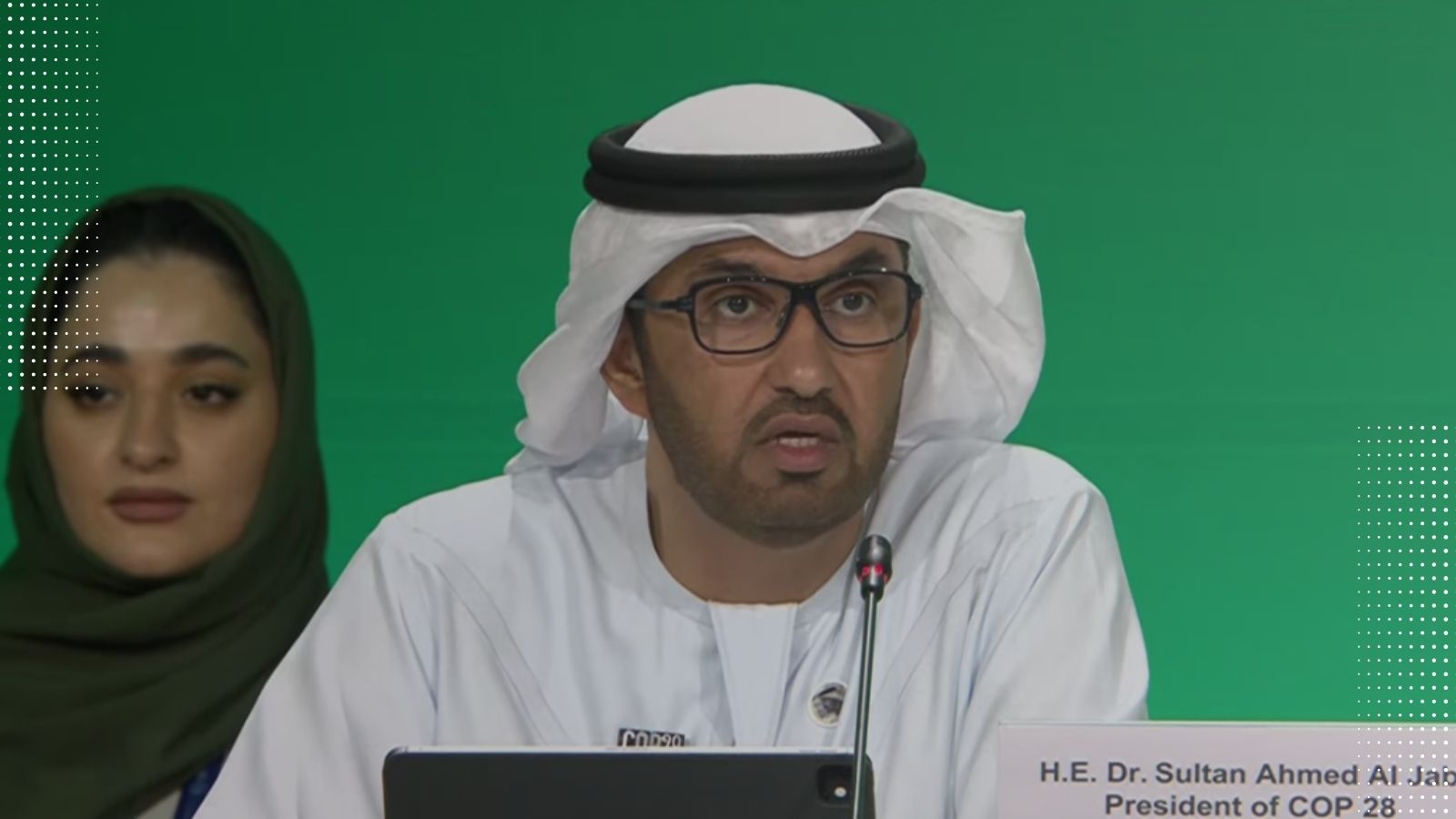COP28 President Sultan Al Jaber has said there is “no science” that says the phase out of fossil fuels will achieve 1.5. In a video published online during a discussion with Mary Robinson of the Elders, the COP28 President is heard saying: “There is no science out there, no scenario out there that says the phase out of fossil fuels is what is going to achieve 1.5”.
Findings from the IPCC, clearly states that fossil fuel emissions from existing infrastructure alone, will exceed the 1.5C global heating limit
The latest IPCC AR6 Synthesis Report from March 2023 shows that:
- We need to reduce CO2 emissions by 48% by 2030 and by 99% by 2050, and most of that CO2 right now is from burning fossil fuels;
- Projected emissions from existing fossil fuel infrastructure alone exceed the remaining budget for the 1.5C goal;
- Phasing out fossil fuels will not send humanity ‘back into caves’ as clean technologies are already available, increasingly cost-effective and embraced by the public.
His statement has elicited the following reactions from climate experts.
Joeri Rogelj, director of research at the Grantham Institute – Climate Change and the Environment and professor in climate science and policy at the Centre for Environmental Policy at Imperial College London.
“The COP President believes there is no science showing that fossil fuels must be phased-out to meet 1.5°C. I strongly recommend him asking around for the latest IPCC report. That report, approved unanimously by 195 countries including the UAE, shows a variety of ways to limit warming to 1.5°C – all of which indicate a de facto phase out of fossil fuels in the first half of the century. Will that take the world back to the caves? Absolutely not, except to cool off during the next excruciating heatwave maybe. Research published just a week ago shows that ending extreme poverty has a negligible impact on global emissions. Less than 5% of today’s emissions until 2050 and potentially as little as half a percent”.
Marina Romanello, Executive Director, Lancet Countdown said:In the light of this statement, health day seems like complete hypocrisy. It’s an enormous betrayal to invite the health community at the table but ignore all the warnings and science that point to how disastrous the impacts of fossil fuels are on our health and future. An outcome that doesn’t address the phase out of fossil fuels, would be a failed outcome. We need governments to step up and negotiate a climate agreement where we have a future not one where we are just holding on by the skin of our teeth”.
According to the IPCC AR6 Synthesis report, published in March 2023:
- For the world to stay on track to limit warming to 1.5C with no or minimal overshoot, CO2 emissions have to go down 48% by 2030, 80% by 2040, and 99% by 2050 (from 2019 levels). Total GHG emissions need to go down by 43% by 2030, 69% by 2040, and 84% by 2050. [Source: Table SPM.1 in B.6.1]
- Almost 80% of all global GHG emissions currently come from energy, industry, transport and buildings sectors, and those emissions are overwhelmingly from burning fossil fuels (for CO2 in 2022, about 90% came from burning coal, oil and gas):
“In 2019, approximately 79% of global GHG emissions came from the sectors of energy, industry, transport, and buildings together and 22% from agriculture, forestry and other land use (AFOLU).” [Source: SPM A.1.4] - 1.5-compatible futures do not allow for any fossil fuel development as projected CO2 emissions from existing fossil fuel infrastructure already exceed the remaining carbon budget
“Estimates of future CO2 emissions from existing fossil fuel infrastructures without additional abatement already exceed the remaining carbon budget for limiting warming to 1.5°C (50%) (high confidence)” [Source: SPM B.5.3]
- Clean technology is already available, increasingly cost-effective and embraced by the public:
“Several mitigation options, notably solar energy, wind energy, electrification of urban systems, urban green infrastructure, energy efficiency, demand-side management, improved forest and crop/grassland management, and reduced food waste and loss, are technically viable, are becoming increasingly cost effective and are generally supported by the public. From 2010 to 2019 there have been sustained decreases in the unit costs of solar energy (85%), wind energy (55%), and lithium-ion batteries (85%), and large increases in their deployment, e.g., >10× for solar and >100× for electric vehicles (EVs), varying widely across regions. <…>
Maintaining emission-intensive systems may, in some regions and sectors, be more expensive than transitioning to low emission systems. [Source: SPM A.4.2]





